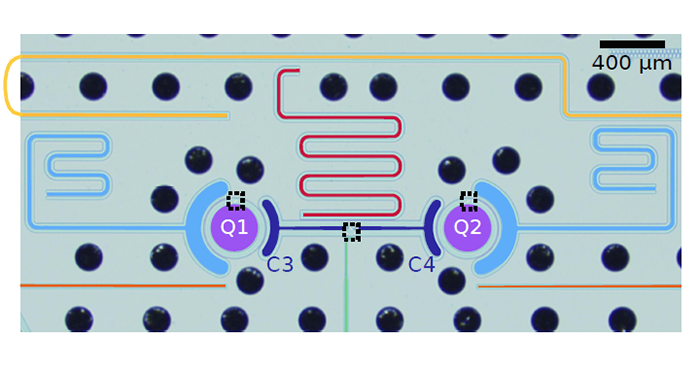By Danny Bedingfield, President, Prostate Cancer
Foundation New Zealand
Cancer kills, but
early detection of cancer reduces the number who die from
it. Whatever the
circumstances, there are always better
clinical outcomes if the existence of cancer is known
earlier. Our health system and government know this, and
currently takes action on some cancers – for
example:
- Breast cancer: Every year 3400 women are
diagnosed, with 600 deaths. A comprehensive early detection
programme was started in 2017. - Colorectal (or bowel)
cancer: Every year 1500 women and 1700 men are diagnosed,
with 1200 deaths. A comprehensive early detection programme
was started in 2017. - Cervical cancer: Every year 160
women are diagnosed, with about 50 deaths.
A - comprehensive early detection programme was
started in 1991.
Because New Zealand rightly
values lives so much, we also have a $61 million “Road to
Zero” campaign underway seeking to reduce road accidents,
which last year claimed 380 lives. And a government budget
since 2020 of around $61 billion to prevent deaths and
protect the community from Covid-19.
So clearly
government accepts it is worthwhile to invest early to save
New Zealanders’ lives – except when it comes to prostate
cancer, the third-greatest cause of cancer death in men
after lung and bowel cancers.
More than 4000 men are
diagnosed and more than 700 die from the disease every year.
Many of these deaths are preventable. That’s why in May we
directly asked the Prime Minister and relevant ministers to
take the first steps towards a comprehensive early detection
programme for prostate cancer.
The time is right.
Significant advances in technology and improved diagnostic
methods mean previous risks have been reduced, and the
latest research clearly shows that a comprehensive
early-detection programme holds the promise of halving
mortality from the disease.
We’ve recommended that
such a programme be approached in two stages.
Stage
One would see an initial trial screening project undertaken
in at least two regions, one in the North and one in the
South Island. This would be based on methodology used by the
European Union (its PRAISE-U trial), with information on
prostate cancer, early detection and a PSA test being
provided to groups at higher risk of significant prostate
cancer by a body such as the already existing National
Screening Unit. These groups are men over 40 who have the
gene variant BRCA2, men over 45 with a family history of
prostate cancer, and all men over 50.
Following the
test, men with low to moderate PSA (less than 3 nanograms
per millilitre) may need nothing more beyond being retested
after 2-5 years depending on their age and PSA
score.
Men with a high PSA will have a risk assessment
based on family history, prostate volume, PSA density,
urinary symptoms and other risk factors. About a third of
these men will be expected to need no further
interventions.
Those still at intermediate or high
risk following the risk assessment will have a
multi-parametric Magnetic Resonance Imaging (mpMRI) scan.
Images of the prostate will be scored on the likelihood of
cancer being present (called a PIRADS score). More than half
of men who have an mpMRI will have a low PIRADS score
requiring no further interventions.
Men with an
intermediate or high PIRADS score will have a biopsy. Some
of these biopsies will lead to a prostate cancer diagnosis
but even among this group of men it is estimated that about
a quarter will require no immediate treatment beyond
“active surveillance”, i.e. regular appointments to
monitor the prostate.
In total, about one third of men
who have an mpMRI scan are likely to have prostate cancer,
three-quarters of whom will need active
treatment.
Along with collaboration and engagement
with the European Union trial, the two trials (or more) in
New Zealand will assist in the formation of a strategy and
framework that can be rolled out on a nationwide
basis.
As there is already significant early detection
infrastructure in place for other cancers we believe this
Stage One initiative could leverage off existing technology
and infrastructure, keeping the marginal cost relatively
low.
For Stage Two, the government could consider
funding key diagnostic procedures for all men in the public
sector, particularly mpMRIs, trans-perineal targeted
biopsies, and PSMA-PET scans (which can tell if the cancer
has spread beyond the prostate) so men with advanced disease
do not have to go through unnecessary radical
treatment.
The Australian government already funds
these initiatives and New Zealand men deserve the same
respect from our government.
We appreciate these Stage
Two initiatives may involve more investment, and for that
reason our preference is that Stage One trials take
priority.
Funding of early detection programmes for
prostate cancer is an urgent equity issue that needs
addressing. Many New Zealanders support this. A petition to
Parliament seeking a funded, risk-based equitable prostate
cancer testing regime has attracted around 30,000 signatures
(online and physical):
https://petitions.parliament.nz/773954cb-f8d3-4684-8b61-72b94edaf13b
While
there was no funding for such a programme in Budget 2023 we
believe existing funding may be able to be tapped to fund
the Stage One trial. Government needs to act now to save
lives.
© Scoop Media



















Discussion about this post